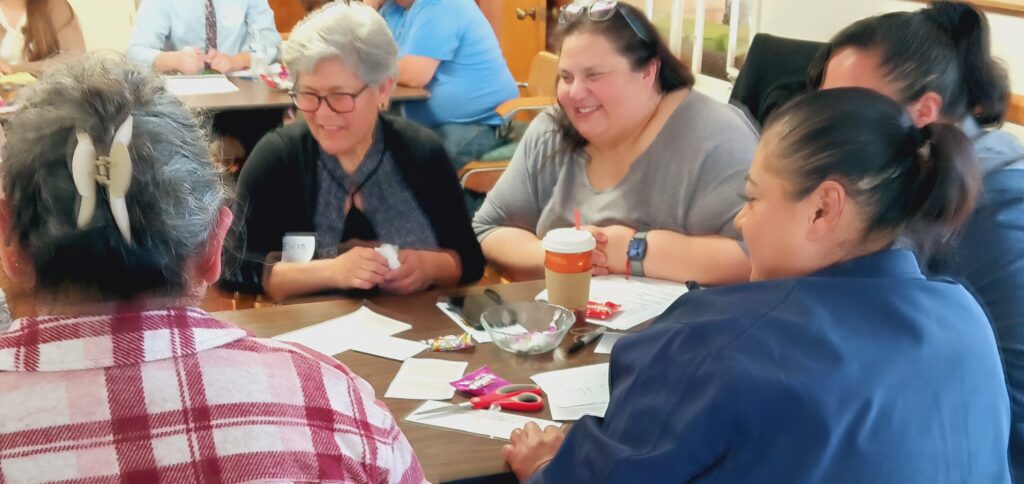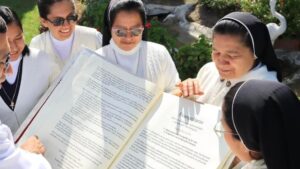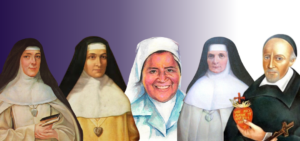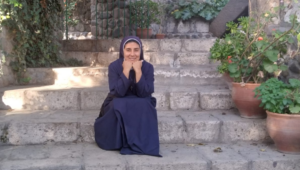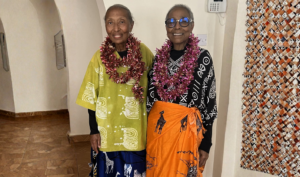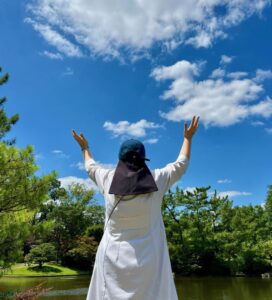By Angela Pancella, Mission Formation Coordinator, Office of Mission Effectiveness
The United Nations invites us all to commemorate World Refugee Day every June 20th. This year’s World Refugee Day theme is ‘solidarity’. As UNHCR, the UN Refugee Agency, puts it, “solidarity means saying, clearly and courageously, that refugees are not alone and that we will not turn our backs.”
To find out more about what this solidarity can look like, I spoke with Deana Payne, the Program Director of Good Shepherd Shelter in Los Angeles, which is a long-term treatment and education-based shelter for women and their children who are healing from domestic violence.
“We are fully supporters and protectors of refugees we have, families and staff, because we have people in both populations that are extremely vulnerable. They’re extremely vulnerable on the best of days, but even more so now,” she said, referring to the increased presence of U.S. Immigration and Customs Enforcement (ICE) agents in LA.
“And I have sent out a lot of information…just holding firm that we are here to care for anyone that needs our help, and we don’t ask questions [like] ‘Where did you come from? Why are you here? Are you really supposed to be here?’ That’s never in our mindset at all.”
Because the families that are served by Good Shepherd Shelter have all experienced domestic violence, I asked if there is increased vulnerability to abuse for refugee families. “It’s unfortunately very, very, very common,” Payne said. “That refugee status is dangled in front of a victim’s mind constantly, and that doesn’t end when they come here. I have a mom here now that is a refugee, and even though she’s out of the [abusive] relationship, she’s scared to death that he’s going to find out where she is and she’s going to get picked up.”
Payne has been mindful of the increased pressures members of her staff have felt. She sends messages to her team, “essentially sharing that if you’re experiencing emotional distress, panic attacks, whatever, then go home, take a sick day. Your job is not in jeopardy.” These messages align with a longstanding emphasis at Good Shepherd Shelter on the importance of self-care.
I asked Payne what we, as the larger Good Shepherd family, could offer in support for the shelter, its staff, and the families they serve. “Number one is prayers,” she said. She had a special message for those in our community living in the United States:
“Call the senators in the states where you live and demand that they not pass [the Budget Reconciliation] bill. Be engaged…Make your voices heard and advocate because there’s a whole lot of stuff in that bill that is going to hurt a whole bunch of people. And I don’t know the percentage, but the majority of them are going to be refugees, they’re going to be the poor, they’re going to be extremely vulnerable.”
She has also found strength in the protests that have happened. “Just knowing that there is a large faction of like-minded community out there that is trying to do what they can to change the situation, that’s extremely comforting and powerful to know again that we’re not alone…People are paying attention, people are engaged…That was very comforting to see and to feel.”
“And then outside of that, and again, prayers, honestly, just continue doing the work that you all are doing. Raise these conversations and ask these questions, not just of Good Shepherds, but everyone. For the most part, you’re not losing anything by engaging in a conversation with someone, even if their views are different than yours.”
